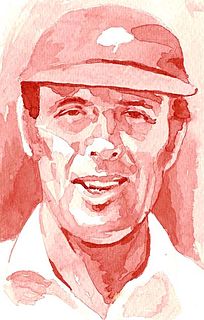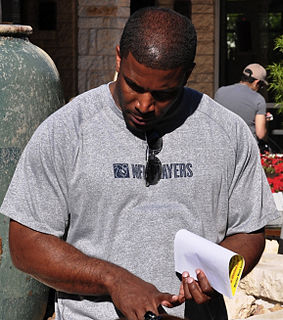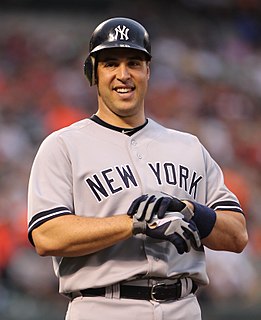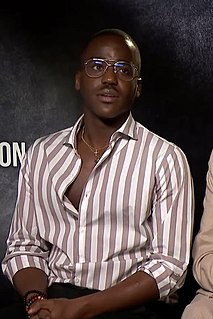A Quote by Al Leiter
Pitches are like pages of a book; they're so important. The chess game; how I set you up early, and how I'll do it differently later.
Related Quotes
If I get stuck, I look at a book that tells me how someone else did it. I turn the pages, and then I say, 'Oh, I forgot that bit,' then close the book and carry on. Finally, after you've figured out how to do it, you read how they did it and find out how dumb your solution is and how much more clever and efficient theirs is!
When people say "How do you write a book, how does it all happen?" I say, you line things up, and you line them up as actually as you possibly can, but sooner or later the book has got momentum and it's moving along under that momentum. It's like a sculpture, if you're working with the grain of the wood, the wood will start defining what shape it's going to become.
...chess is "a lot like football because you have to set up your offense and your defense, every once in a while you need to give up a piece of your team in order to make the big play. It's a game of patience, and that pretty much defines how I run the ball. I'm patient, always looking for the opportunity and always trying to capitalize on the other person's mistake."
Isn't it odd how much fatter a book gets when you've read it several times?" Mo had said..."As if something were left between the pages every time you read it. Feelings, thoughts, sounds, smells...and then, when you look at the book again many years later, you find yourself there, too, a slightly younger self, slightly different, as if the book had preserved you like a pressed flower...both strange and familiar.
I love chess, and I didn't invent Fischerandom chess to destroy chess. I invented Fischerandom chess to keep chess going. Because I consider the old chess is dying, it really is dead. A lot of people have come up with other rules of chess-type games, with 10x8 boards, new pieces, and all kinds of things. I'm really not interested in that. I want to keep the old chess flavor. I want to keep the old chess game. But just making a change so the starting positions are mixed, so it's not degenerated down to memorisation and prearrangement like it is today.
Chess - it's a nonmainstream game. And the irony is that when you look at Hollywood, it kept using chess as the symbol of intelligence for its heroes, for its top characters, all the time. So it's from "Casablanca" to "Harry Potter." You always have chess as a very important element to demonstrate intelligence, while in normal life people think it's just a weird intelligence - like AI.






































